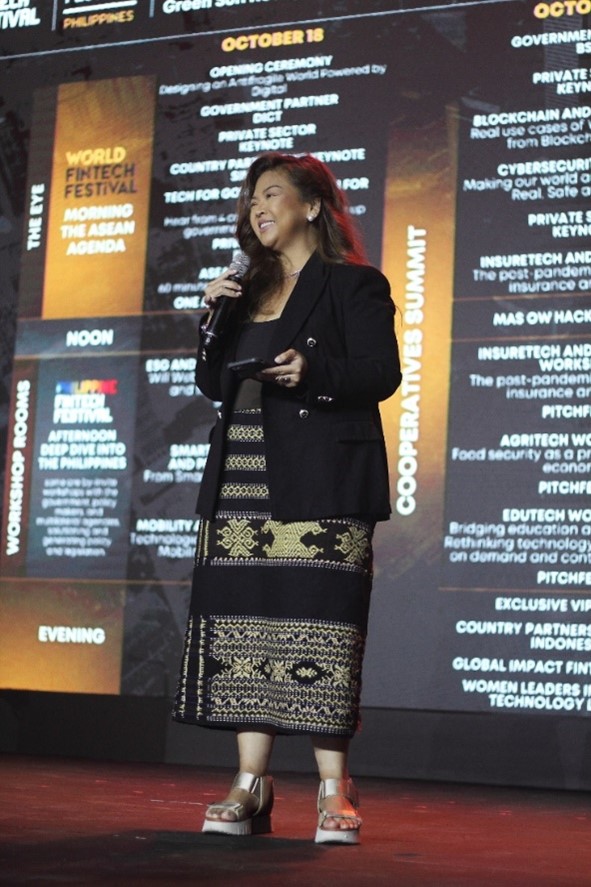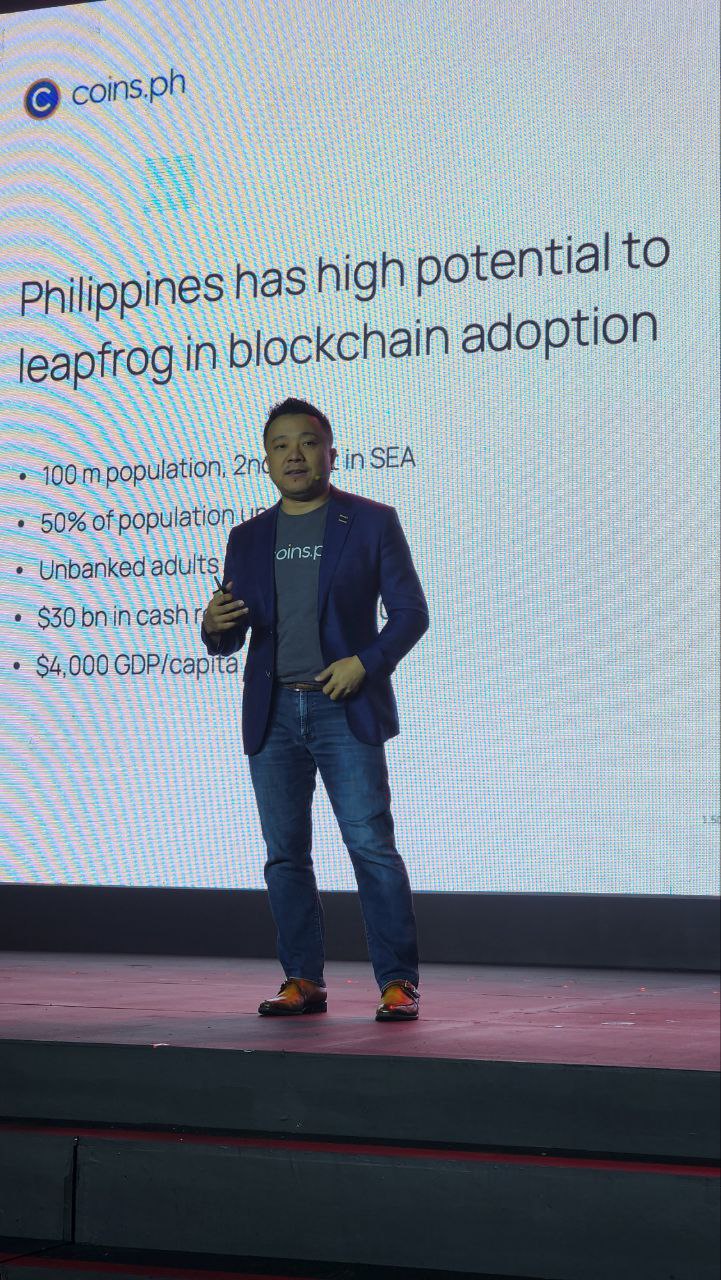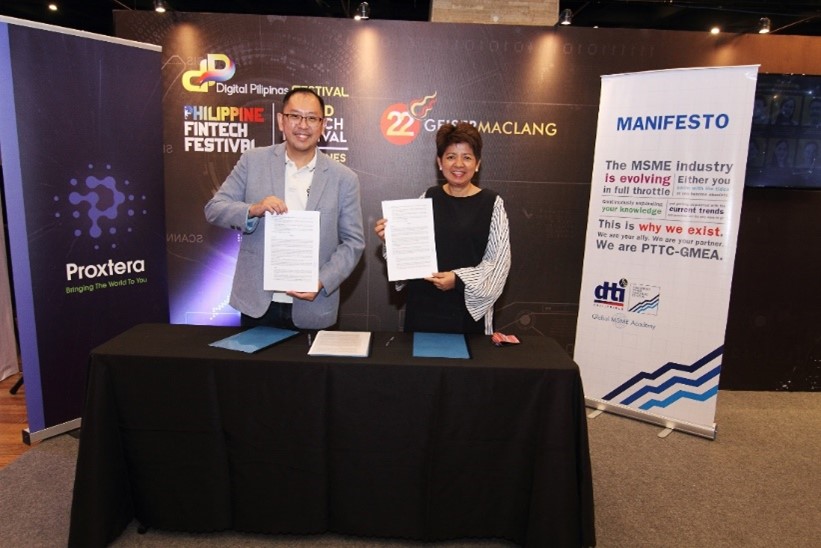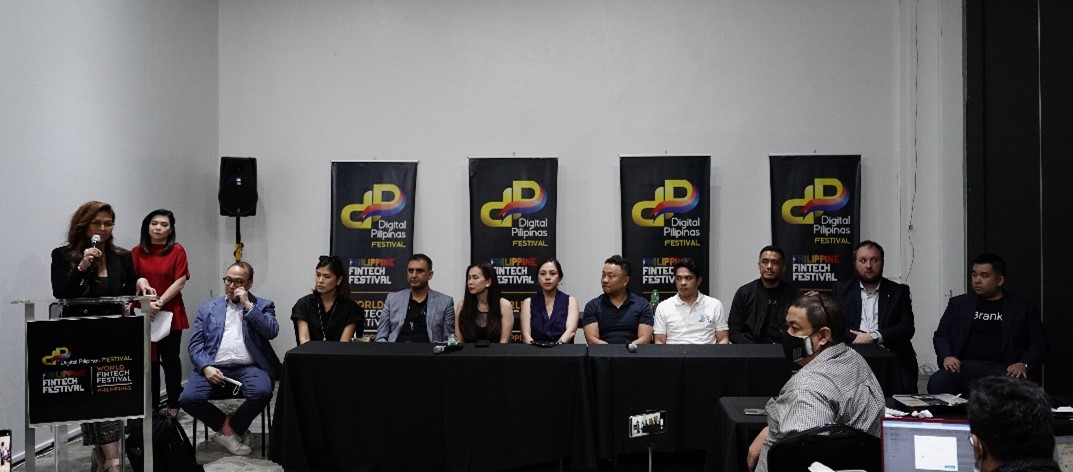The Philippine FinTech Festival showcases ASEAN as a global powerhouse for innovators, start-ups
Increased collaboration between thought leaders, decision makers key to advancing digital economies
The first week-long Philippine Fintech Festival (PFF) – World FinTech Festival-Philippines concluded its week-long run, bringing together leaders from the government, various industries, the technology space and other strategic partners from the Philippines, ASEAN and the rest of the world.
The first PFF was convened by Digital Pilipinas, the largest private sector-led movement championing the betterment of the country, and co-presented by Coins.ph, one of the leading proponents of blockchain and Web 3.0.
PFF kicked off ASEAN FinTech Month and was the first in a series of summits followed by the BOT Digital Conference in Thailand, which eventually led up to the annual Singapore FinTech Festival (SFF) in November. ASEAN FinTech Month highlighted ASEAN as a global powerhouse for innovators and start-ups and served as a platform for increased collaboration between regional players such as the Philippines, Singapore, Indonesia and other countries with strong digital initiatives such as Hungary, Israel and Japan.

“These are countries that share ASEAN’s vision of innovation and unity, born of a desire for mutual progress. We are so grateful for their participation, and they represent part of our larger imagination in the Philippines,” said Amor Maclang, Conference Chair of the World FinTech Festival -Philippines and Digital Pilipinas, from the partner countries. “Not only as a nation that rises to prosperity through technology, not only as a good sibling to our ASEAN brothers and sisters, but as a welcoming gateway to ASEAN for other countries that want to do business in our region. And perhaps as a soft landing for innovators from other countries, who, in the face of unfavorable political or economic conditions, temporarily need to move to where their culture of innovation will be preserved.”
Coins.ph CEO Wei Zhou spoke about seizing the current momentum for digitization and collaboration: “To really succeed in this, we need users, capital and projects that will help our community take off – and that’s what we see becoming built here in the Philippines.” Coins.ph’s mission is to create an open financial system by giving everyone easy access to Web3 and digital assets.

More than 200 government, business and education leaders and 5,000 visitors attended the week-long festival to address long-standing socio-economic and infrastructure challenges with digital solutions to create a stronger, more anti-fragile, regional digital economy.
Technical pillars for progress
PFF’s key pillars focused on the power of cooperatives in a digital world, and how big data, automation and cross-border collaboration can enable seamless and safer payments across the region. Also discussed was InsureTech’s improvement of the insurance process and making it more accessible to Filipinos. Green finance was introduced as a stimulator for industries and the economy. Open Finance enables customers to safely use financial services from qualified third-party providers.
Other points of discussion were the roles of NFTs, e-wallets and digital currencies in unlocking a country’s potential in Web 3.0 and the Metaverse. EduTech can address the tandem challenges of learning gaps and investment in information technology infrastructure to make the country’s education system more competitive. WealthTech increases wealth opportunities for Filipinos. MarkTech empowers small businesses to improve their brand positioning and market reach. AgriTech provides a platform for agricultural workers and farmers to collaborate and find new customers, while increasing food security.
In addition to identifying the pain points of making cities smarter, thought leaders also discussed how real estate developers and cities are the benefactors of the innovations and promises of PropTech. They also agreed that while the industry was slow to adopt technology, there is now a recognition that digitization and automation will play an increasing role in the coming years, for example to tackle environmental planning and mobility.
International agreements and cooperation
In recognition of the role of partnership as the key to increased integration of economies, a number of agreements have been signed under the PFF. The first was between the Department of Trade and Industry’s Philippine Trade Training Center and the Monetary Authority of Singapore’s Proxtera, on leveraging technology to improve accessibility between the Philippines and Singapore. Second, Digital Pilipinas and Hungary’s Digitális Jólét program will promote joint business ventures through digital technologies with the support of Titanilla Toth, Hungarian Ambassador to the Philippines. Finally, Digital Pilipinas’ partnership with Affindi and Indonesia’s Financial Services Authority, respectively, will result in certification and knowledge sharing between the two and will be made available to Filipinos. Noel Bonoan, Deputy Chairman and Chief Operating Officer, KPMG in the Philippines, agreed that the Philippines can learn from Hungary, especially in terms of governance. He said that “from the KPMG perspective, we look at digitization not only at a national level, but also from a local level.”

Probably reflecting the viewpoint of the international partners was Israel’s ambassador to the Philippines, Ilan Fluss, who said: “It’s about creating bridges of innovation and technology between Israel and the Philippines.
Acknowledging the government’s role in making integration more seamless, David Almirol, Undersecretary at the Department of Information and Communications Technology, shared in a keynote address that “at DICT we are not a disruptor, but we are an enabler for all of them. We are here to simplify the process. Our job is to stitch together the gaps to streamline the processes. Instead of creating more integrations, what we need to do is come up with an e-government gateway.”
The private sector recognizes the need for more cross-border collaboration, interoperable ecosystems
For the private sector, Yang Yang Zhang, CEO, Xendit Philippines, conveyed that Southeast Asia has yet to truly master scalability and to address that there is a need to “build one thing that spans multiple markets, that spans merchants of all sizes, she said.
Erika Dizon-Go, Senior Vice President, Fintech Business Group Head, Open Finance and Digital Services Center of Excellence Head, Union Bank of the Philippines, agreed that there is a need to harness open finance and the open economy so that “the next generation will allow opportunity, ambition and industry’s role and purpose in society.”
In order to stimulate open finance, Winsley Bangit, CEO, G-Xchange, Inc., there is a need to solve “unique Philippine and ASEAN problems so that we can create the backbone of a strong and innovative FinTech community.”
George Royeca, CEO of Angkas, acknowledged that in addition to financial inclusion through platforms that encourage more people to participate in the economy, there is also a need for the private sector and government to work together to “create the best products that will have it highest positive effect.”

April Tan, Head of Corporate Strategy at COL Financial, agreed that financial inclusion and more wealth can be achieved by allowing investors to “participate in the various ASEAN countries by buying shares, and access to financial resources can bring wealth growth.”
Sauray Bhattacharyya, CEO of Proxtera, agreed, saying that for the private sector and policy makers, “the focus right now is on cross-border partnerships; that’s what we hope to strive for in the coming years.” For Ann Cuisia, CEO and President, digiCOOP Technology Service Cooperative, all partnerships and collaborations should also trickle down to other organizations that play a major role in the economy, saying that “we are building ecosystems to provide digital services for cooperatives and their members , and makes progress mostly for the grassroots.”
Rico Bautista, President and CEO, Etiqa Philippines, and President, Philippine Life Insurance Association Inc. (PLIA), shared that “InsureTech will fundamentally reshape the insurance industry through emerging technologies such as artificial intelligence, smart devices, machine learning and augmented reality to transform and enhance aspects of the insurance process – all aimed at making insurance more accessible and making the world a better place.”
To cement the progress made so far in the digital ecosystem, Michael Calma, country manager, ADVANCE.AI, said there is a need for “an entire ecosystem to not only secure audiences but also to educate them through experiences that are sustainable”.
For Manish Bhai, Founder, President and CEO of UNO Digital Bank, said that encouraging further cross-border collaboration is key to ensuring successful digitization. He shared that “what we are trying to do is that everyone is a partner. It has to be cross-country, ASEAN, regional and global.”
During the final day of the festival, Maclang looked to the future and said: “This is just the beginning of our journey together. What we do here will go around Southeast Asia. Indeed, the train is moving fast for ASEAN Fintech Month.”
Digital Pilipinas is the largest private sector movement to create a technology and innovation ecosystem aimed at bringing about technological acceleration in the country. It convened the Digital Pilipinas Festival (DPF), which was composed of the World FinTech Festival-Philippines (WFF-Philippines) and the Philippine FinTech Festival (PFF), in collaboration with Elevandi, an organization founded by the Monetary Authority of Singapore (MAS) to promote dialogue between the public and private sectors to promote FinTech in the digital economy.
Participating in the Philippine FinTech Festival were co-presenter Coins.ph and co-conveners Etiqa Philippines; Alleged; PayMongo, Union Bank of the Philippines; digiCOOP; ADVANCE.AI; NinjaVan Philippines; KPMG in the Philippines; UNO Digital Bank; Creator; Globe; PruLife UK; ACUBELAW; Gorriceta Africa Cauton & Saavedra; Branka’s; GCash; COL Financial; and Xendit Philippines. PFF was also supported by the following partners: Tech Exactly; StartUp Village; BounceBack PH; Fintech Philippines Association; FinScore; Mapúa University; and GeiserMaclang.
Media partners were the Inquirer Group of Companies; Asking Mobile; Inquirer.Net; Philippine Daily Inquirer; The Philippine Star; Manila Bulletin; United Neon; Co-investment; and CoinGeek.
New to Bitcoin? Check out CoinGeeks Bitcoin for beginners section, the ultimate resource guide for learning more about Bitcoin – as originally envisioned by Satoshi Nakamoto – and blockchain.


